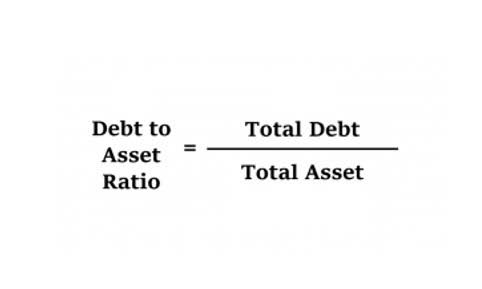
As the business environment continues to evolve, accounting standards related to the going concern assumption may also undergo changes to address emerging risks and challenges. The going concern assumption ensures that financial statements are crafted with a long-term perspective, reflecting an entity’s ability to honor its obligations and sustain operations. This assumption influences accounting practices such as asset valuation, depreciation, and amortization schedules. Without this presumption, assets might be stated at liquidation values, which could present a distorted view of a company’s financial health and lead to a lack of confidence among stakeholders. The going concern concept assumes that an organisation will continue to operate indefinitely and will not need to liquidate its assets or cease operations. This principle is essential in accounting, going concern as it allows businesses to allocate expenses and revenues over multiple accounting periods.
What Happens If a Company Is Not a Going Concern?
- Therefore, the change in value is not realizable; Douglas and his company must not consider the going concern assumption.
- A corporation in bankruptcy, for example, has to compile its financial statements on a liquidation basis, explicitly alerting creditors and investors to the uncertain nature of recovery.
- A company that’s a going concern can back up its financial health and has confidence in its potential for success and longevity.
- Consideration should be given to the fact that excessive detail may not actually improve presentation and therefore not assist users of financial statements.
- CFI is the official provider of the Financial Modeling and Valuation Analyst (FMVA)™ certification program, designed to transform anyone into a world-class financial analyst.
A going concern concept diagram visually represents how the assumption of continuity impacts financial reporting, including the treatment of assets, liabilities, and deferred expenses. Auditors must remain vigilant against management bias, as projections may be overly optimistic or risks underreported. To ensure reliability, auditors often use sensitivity analyses, stress-testing financial models to evaluate how adverse scenarios might affect viability. Adhering to standards like ISA 570 (Revised), auditors uphold the integrity of financial reporting.
Reporting
Using this logical approach, it should be possible to identify which accounts will be affected and then consider how they will be affected. Once you have viewed this piece of content, to ensure you can access the content most relevant to you, please confirm your territory. This could include missed loan payments, unpaid bills, or an inability to pay employee salaries. If the company was a going concern, they would report the value of their skateboards based on what they could sell for over the next year. Indeed, given access to finance, workable recovery strategies, or other resources guaranteeing continuity, a company may nonetheless be a going concern notwithstanding losses.

Ability to Obtain Financing or Access Capital Markets
Also, both property sellers and buyers must have VAT registration—registered as vendors. Also, the transaction should involve all the related assets that facilitate income generation. Although the going concern assumption holds no place in the Generally Accepted Accounting Principles (GAAP), it is recognized by Generally Accepted Accounting Standards (GAAS). GAAS considers this principle a crucial parameter for determining the longevity of a business. Without any significant information to the contrary, it is always assumed that the entity will be able to meet all its obligation without significant debt restructuring and continue to be a going concern entity.

Development and Integration into Accounting Principles
The going concern concept assumes that a company will operate more or less in the normal course for the foreseeable future and will not shut down or liquidate anytime soon. In other words, a gong concern will continue to exist in the long run, with no intention to shut down. When management considers such assumptions inappropriate, financial statements are prepared based on a break up basis. In case the auditor decides to qualify their audit report, it may raise the issue of whether assets are already impaired, which may highlight the need to write down the value of the assets from their carrying value to liquidation value. However, a company can choose to justify their decisions and attempt to make the auditor believe that poor business operating conditions are only temporary.
It is the responsibility of the management of a company to determine whether the going concern assumption is appropriate in the preparation of financial statements. If the going concern assumption is considered by the management to be invalid, the financial statements of the entity would need to be prepared on break up basis. This means that assets will be recognized at amount which is expected to be realized from its sale (net of selling costs) rather than from its continuing use in the ordinary course of the business. Assets are valued for their individual worth rather than their value as a combined unit. These financial statements have been prepared on a going concern basis, which assumes that the company will Accounts Payable Management continue to operate and generate profits in the future. However, the company’s ability to continue as a going concern is dependent on its ability to generate sufficient revenue and secure additional financing as needed.
- The business entity principle simply means that, for the purpose of maintaining accounting records, the business is treated as a separate entity from the owner(s) of the business.
- This would result in a change in the set of financial statements, thus offering an improved image of the financial condition of the company.
- But it will not be updated to reflect the current value of a similar asset or liability which might be acquired or taken on.
- If Douglas decides to sell the manufacturing plant and equipment, he might get more or less than $402,000, which will change his financial position.
- – Assume Microsoft is currently suing a small tech company for copyright violation over its software package.
This would result in a change in the set of financial statements, thus offering an improved image of the financial condition of the company. In accrual accounting, the financial statements are prepared under the going concern assumption, i.e. the company will remain operating into the foreseeable future, which is formally defined as the next twelve months at a bare minimum. During an economic crisis, the going concern concept helps businesses prepare financial statements under challenging conditions, assessing whether they can continue operating or need to adopt alternative accounting bases. Practical applications of the going concern concept include preparing financial statements, calculating depreciation of long-term assets, and ensuring proper cost allocation over accounting periods. The business entity principle simply means that, for the purpose of maintaining accounting records, the business is treated as a separate entity from the owner(s) of the business. The Conceptual Framework refers to a ‘reporting entity’ which is an entity that is required, or chooses, to prepare financial statements.

- Assessing a company’s financial viability is inherently subjective, as it involves making judgments and estimates about future events, which may be uncertain or difficult to predict.
- However, a business entity is not necessarily a separate legal entity and candidates should simply deal with transactions from the perspective of the business.
- When entities falter on this front, the repercussions can be significant, influencing investment strategies and the broader economic landscape.
- It assumes that the entity will continue to remain in business for the foreseeable future.
- The “going concern” concept assumes that the business will remain in existence long enough for all the assets of the business to be fully utilized.
The need for timely reports has led to the preparation of more frequent reports, such as monthly or quarterly statements. – On the date it is considered earned (when the service has already been rendered). Hence, the income should be recognized in December 2021 even if it has not yet been collected as of that date. Holly Carey joined NerdWallet in 2021 as an editor on the team responsible for expanding content to additional topics within personal finance. Previously, Holly wrote and edited content and developed digital media strategies as a public affairs officer for the U.S. Many, or all, of the products featured on this page are from our advertising partners who compensate us when you take certain actions on our website or click to take an action on their website.
What is Activity-Based Costing and How Does It Work (Explained)
If a company is not a going concern, its What is bookkeeping management is required to disclose this fact and must provide the reasons for the negative conclusion. One of the larger repercussions of not being a going concern is the credit challenge. New lenders are unlikely to issue new credit, at least at a reasonable interest rate.
